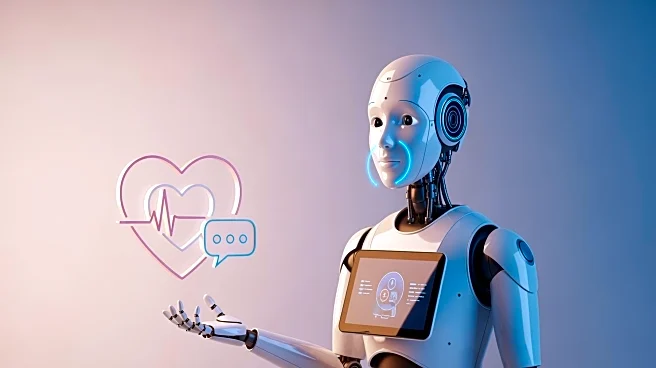What's Happening?
A study published in Nature reveals that reasoning-based large language models (LLMs) have surpassed average human performance in medical social skills assessments. The study compared the performance of
OpenAI's GPT-4 and other LLMs on USMLE soft skills assessments, finding that these models excel in tasks requiring empathy and communication. The study highlights the potential of LLMs to enhance human abilities in healthcare, particularly in tasks requiring social skills.
Why It's Important?
The findings demonstrate the growing capabilities of AI models in areas traditionally considered exclusive to humans, such as empathy and communication. This development could have significant implications for the healthcare industry, where AI models may be used to support medical professionals in patient interactions and decision-making. The ability of AI models to outperform humans in social skills challenges assumptions about the limitations of AI and opens new possibilities for their application in clinical settings.
What's Next?
The study suggests that AI models could be integrated into clinical practice as decision support tools, enhancing the efficiency and effectiveness of healthcare delivery. As AI models continue to improve, healthcare institutions may explore their use in patient communication and virtual reality simulations for assessing social skills. Further research is needed to evaluate the performance of AI models in real-world clinical environments and to address ethical concerns related to their use.
Beyond the Headlines
The study raises ethical questions about the role of AI in healthcare and the potential impact on human skills development. Overreliance on AI for social and ethical decision-making may diminish human abilities in moral reasoning and empathy. Additionally, biases in AI training data could lead to disparities in healthcare outcomes, highlighting the need for careful evaluation and regulation of AI systems.









